The Vatican's Unexpected Hazard, plus Yulia Navalny and the Fiery Truth Teller Tribe
Will the pope's loose cannon brother turn into the Vatican version of the Meghan Markle family?
I predict that white smoke will soon be billowing from Trump’s ears as the global media power of the first American pope becomes increasingly evident. The ascension of Cardinal Robert Francis Prevost to the Holy See feels like a brilliant celestial move by his predecessor Pope Francis to create not just a rival moral center from the U.S. to counteract Trump, but one who can draw even bigger crowds and command instant mega-headlines. That will put Trump in an immediate quandary when, for instance, Pope Leo XIV uses his voice in defense of destitute migrants. Francis too was a champion of migrants, but somehow his fundamental foreignness could not agitate Trump in the same way as Rob from Chicago surely will. Trump risks the wrath of 53 million American Catholics if he follows what will undoubtedly be his instincts and starts trashing and trolling the new pope. Will the supreme pontiff be unexpected spiritual rescue from the secular shit show of this venal, grifting presidency?
But now, I am worried. There have been too many interviews with Pope Leo’s chatty brother, Louis. (“My brother’s the pope, yikes!”) I don’t want the papacy demystified – in the way America demystifies everything – with pedestrian anecdotes about how Rob used to cosplay as a priest, giving Necco wafers to his brothers in place of communion wafers, and, “Jeez, it was like just yesterday, I was throwing him down the stairs.” If holy awe is to be preserved, we don’t need any undermining of papal mystique. Plus, America has enough global power as it is. Its cultural hegemony flattens the enigma of the sacred. There would have been less risk of spiritually deflating familiarity if the conclave had chosen the Filipino or the Italian candidate instead.
Yes, it's heartening that the new pope spent decades ministering to the poor in Peru, but the poor in Peru won’t be the ones on social media. Was a chippy undertow already starting to reveal itself in Louis’s jocular childhood anecdotes about Robert? Louis hadn’t yet, he told Kaitlin Collins on CNN, managed to get through to his younger brother, which suggested that the pope was not texting him hosannas.
The speed and immediacy of a papal choice means there is no time for a family background check. Too late now, habemus papam! Did anyone in the Vatican look at Louis’s own Facebook page? The Daily Beast did. And sweet Jesus! It turns out Louis is a jeering MAGA blabbermouth who has posted such rants as: “Back in the earlier days of our country, before lefties took over and ruined our schools, all these lefty dems would’ve been tarred, feathered and rode out of town on a donkey, or worse, shot or strung up.” Or this repost about Nancy Pelosi: “These f---ing liberals crying about tariffs is just unreal. Do they not know that there is a thing called video? Just listen to what this drunk c--t has to say in the mid-90’s long before her husband had grindr dates.”
What if the Vatican, like the House of Windsor, finds itself with a Meghan Markle family situation on its hands? His Holiness Pope Leo XIV speaks with his other, more temperate older brother John every day. If Louis starts to feel left out like Meghan’s embittered half-sister, Samantha, will he start shooting his mouth off to Piers Morgan? It takes rare self-discipline and savviness to resist the seductive tabloid blandishments and financial offers that come from suddenly being the nearest available quote machine for a world-famous celebrity. Which cardinal will be dispatched to excommunicate Louis in such a way that he remains muzzled with a permanently scrubbed social media feed? Let's hope someone smart in the Vatican office makes sure Louis is assuaged with a front-page picture of a fraternal embrace on May 18 when Pope Leo is installed as Vicar of Christ.
Warriors for Truth
Sally Quinn’s much-circulated NYT op-ed about the pervasive fear and sense of impotence roiling “once powerful lawyers, journalists, politicians, academics and lobbyists who have made up official Washington for the past few decades” left me in a dyspeptic mood. They all sounded so defeated! I read the column in London, the day after Truth Tellers, the investigative journalism summit that I founded with Reuters and Durham University in honor of my late husband Harry Evans’s brave newspapering legacy. The mood at the summit was the opposite to that of Washington wobblers tasered by Trump 2.0. The audience was buoyed up by the dauntless heroes on stage who risk not just their jobs, but incarceration and even murder for standing up to authoritarian regimes.
Below are highlights from just a few of the rousing Truth Teller programs that rallied journalism to the barricades.
Exhibit A: the infinitely resourceful Eastern European investigative journalist Christo Grozev. (“We know the enemies of media freedom are creative. We have got to get far more creative, too.”) He has outed multiple Russian spies and assassins, most notably the numbskull trio who laced the late Russian opposition hero Alexei Navalny’s underpants with the lethal nerve agent Novichok in 2020. Christo, whom Navalny once called a modern-day Sherlock Holmes, is now a fugitive from Putin’s executioners himself. He is journalism’s elusive pimpernel, sliding in and out of the UK, the U.S., Germany, Lithuania, and Austria (“I missed my daughter’s best years”), dodging Putin’s “muppets,” as he calls them. He refuses to hide as he grinds out disruptive scoops on multiple platforms, putting him in further danger every day. Christo has said that a health check revealed that the level of stress in his nervous system doesn’t fluctuate. “The doctor interpreted that by saying that even when I’m asleep, I’m at the same level of stress.” To get to Truth Tellers, he had flown 11 hours overnight from a conference in Los Angeles.
We paired him with the firebrand Irish human rights lawyer Caiolfhionn Gallagher, who wakes up every day to threats for her work on behalf of global journalists in prison or in danger. Gallagher is the legal force behind Nobel Peace prize winner Maria Ressa, imprisoned Hong Kong publisher Jimmy Lai, and the Iranian rapper Toomaj Salehi, a supporter of the Women, Life, Freedom movement, whom she helped spring from prison last year. Gallagher lamented that many of her clients no longer feel that the U.S. is a safe refuge. “If you are an Afghan or you are an Iranian and you are a journalist, you are very likely to be in the U.S. because you are opposed to the Taliban or opposed to the Iranian regime, and suddenly finding that your place of safety is no longer a place of safety is a real issue.”
Meet Roberto Deniz from Venezuela, a country that in the last ten years has dropped 38 places in the World Press Freedom Index. This intrepid sleuth for the news platform Armando.Info continues to report from exile on a powerful and corrupt businessman ensconced at the highest level of Maduro’s government. Roberto, the subject of the PBS documentary A Dangerous Assignment, has paid a steep price for his tenacity. He has been separated from his family for five years and lives in Colombia with the anguish of knowing that his parents back home are harassed and interrogated. He has been accused of being part of the corruption he has exposed. There are two arrest warrants out for him on charges that carry up to 20 years in prison. The Maduro regime is trying to get a Red Notice slapped on him by Interpol. On stage with Roberto was fellow Venezuelan Juan Ravell, who directed the documentary and was also forced into exile. Roberto said, “When people ask, ‘Why do you keep investigating after exile, after all these years?’ I answer, as a journalist, why not?...It's our duty. It's our mission. It's our responsibility to do it.”
Heartbreaker of the day: the slim, modest, soulful Reuters photojournalist Mohammed Salem. He had stayed in Gaza from the start of the war, creating iconic images of terror and beauty, even as his brother Belal, a fellow journalist, was killed, and his own child was born into a bombed-out world. Reuters was finally able to extract Mohammed two months ago and yet, incredibly, the week of the summit, he was back on the job as a consummate professional, filing images from Rome during the papal conclave. He took us through a slide show of his work in Gaza in a conversation sensitively led by Bloomberg’s weekend editor-at-large Mishal Husain. “You see a crowd and all the people shouting for the food,” he said. “It's a difficult moment for me – it's not easy when I take a picture like this because I'm also in the same situation with these people.”
It was stunning to consider that this quiet hero, who lost more than eight members of his family in the war, could still retain his focused artistry. The sight of a rose silk ball gown displayed on a mannequin amidst Gaza’s grey rubble and dust produced one of Mohammed’s most haunting pictures. He also shared the image that won him his second World Press Photo prize last year, of Palestinian Inas Abu Maamar cradling the body of her five-year-old niece Saly. Mohammed said simply, “This picture is always with me. I didn’t forget.”
A fan favorite: the Atlantic magazine’s editor-in-chief Jeffrey Goldberg, journalism’s man of the hour thanks to his explosive Signalgate scoop. In his interview with me, he called it the ultimate millennial investigation. “I'm just going to wait until somebody sends me something.” Trump’s unfettered second term, he observed, “is Watergate every day.” (Joe Kahn, executive editor of the New York Times, suavely admitted that the NYT now publishes a Trump piece on average every 30 minutes, and added “The president of the United States, for us, for many media organizations, will always be able to make news. You just have to face that reality.” The FT’s big thinker Ed Luce said that the awful truth was that Trump represents “quantitative easing” for journalism. Economist editor-in-chief Zanny Minton Beddoes, whose blistering intellect and upper-class self confidence reminds me of Diana Taverner, M15 deputy director-general in the Apple TV hit, Slow Horses, said “Even our Republican readers who support Donald Trump, of whom there are many, should find our journalism useful and important and authoritative and trustworthy.”)
Goldberg credited the Atlantic’s owner, billionaire Laurene Powell Jobs, for standing strong behind the magazine when other media owners are creepy-crawling to Trump. “The north star is character,” he said. “As some of these eruptions are taking place at the Washington Post and Los Angeles Times, ABC, CBS, Laurene said, ‘I've never gotten so much credit for simply standing still.’ But that's the thing, standing still in the storm is an action.” “To go to the theme of this conference,” Goldberg concluded, “the only way to operate in this environment is to refuse to be bullied and refuse to be scared…our values are our values, they don't change with the shifting winds.”
The star of the day: Alexei Navalny’s widow, Yulia Navalnaya, an alabaster column of fire and ice. Her slim, pale beauty radiates preternatural calm and luminous conviction. The one person I’ve met who rivals Yulia for magnetism is Princess Diana.
Yulia and Alexei met on a student trip to Turkey, when he locked eyes on her through a bus window. In his memoir, Patriot, which Yulia published after his death last year from notes smuggled out of prison, Alexei wrote, “It all worked out purely by chance. I might have looked in the wrong direction. You might have turned the other way. The instant that has defined my life might have passed differently and everything would have been different.” Perhaps in today’s transactional, dating app world, only Russians raised on Anna Karenina and Doctor Zhivago still know how to live out epic love stories. The introductory video to her interview included the moment when, locked in a glass cage at his trial and gazing at her across the courtroom, Alexei drew a heart with his finger on the glass and then pointed to Yulia with infinite tenderness. For 26 years, she was Alexei’s soulmate. “It was always a competition to [express] who loved one another more,” she told me.
But Yulia was not simply her husband’s marital sounding board. She was his political strategist. She has been asked many times why she and Alexei returned to Russia from Germany after his poisoning, knowing he would almost certainly be arrested. But she insisted there was, for him, no other option. In his head, he never left Russia. “He wanted to live in Russia,” she said. “He was a Russian politician. He wanted to be with his supporters.”
I told Yulia that no one would have blamed her if she had decided to retreat into private life after her husband died. Someone else in the Navalny circle could have led the movement. Her eyes suddenly became steely. She said no, she knew “it had to be me,” just as she knew immediately that the official version of the 47-year-old Alexei’s sudden “natural” death after a walk in the prison yard was a lie, and that he had been murdered on Putin’s orders.
Last July, the Kremlin issued a warrant for Yulia’s arrest, yet she insists she is ready to return to Russia and run for president whether it is tomorrow or ten years from now. Her challenge is to stay relevant from exile, something she tries to achieve in part by having the Navalny Anti-Corruption Foundation team continue to post exposés on YouTube about the self-dealing rot of Putin’s kleptocracy. She is also preparing, along with economists, educators, and civil society reformers she has assembled for the time when her husband’s murderer will – she believes – assuredly fall. She vowed, “It will be, for sure, one day a democratic, free Russia…It's very important for us to make this day happen as soon as possible.”
After our conversation, she joined me and Reuters editor-in-chief Alessandra Galloni in the audience to watch Goldberg, Luce, and the News Agents podcast star Emily Maitlis debate the question, Can Truth Survive? By this time in the summit, the question had answered itself. Goldberg put it succinctly, “the truth bats last.”
p.s. Even as I write these words, Pope Leo has just issued a resounding validation of press freedom at his first news conference in Vatican City . It blew away all my doubts. He voiced solidarity with imprisoned journalists and called for a different kind of communication that “does not seek consensus at all costs, does not use aggressive words, does not follow the culture of competition, and never separates the search for truth from the love with which we must humbly seek it.” Journalism, he said, does “not exist outside of time and history. Saint Augustine reminds of this when he said, ‘Let us live well, and the times will be good. We are the times.’” Hallelujah for the American pope!
.





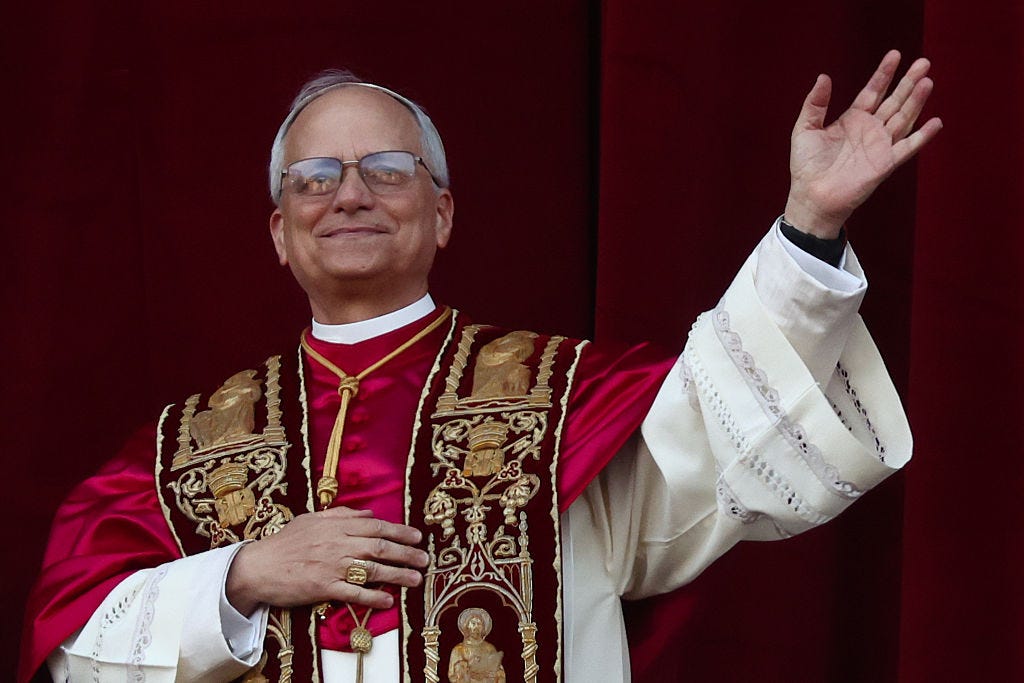
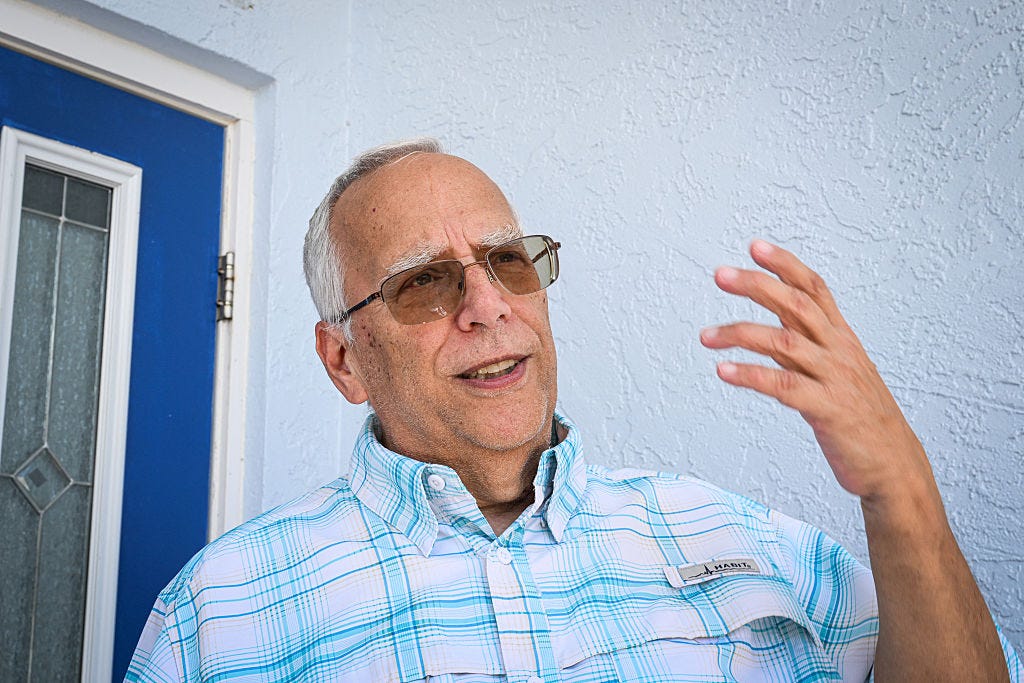
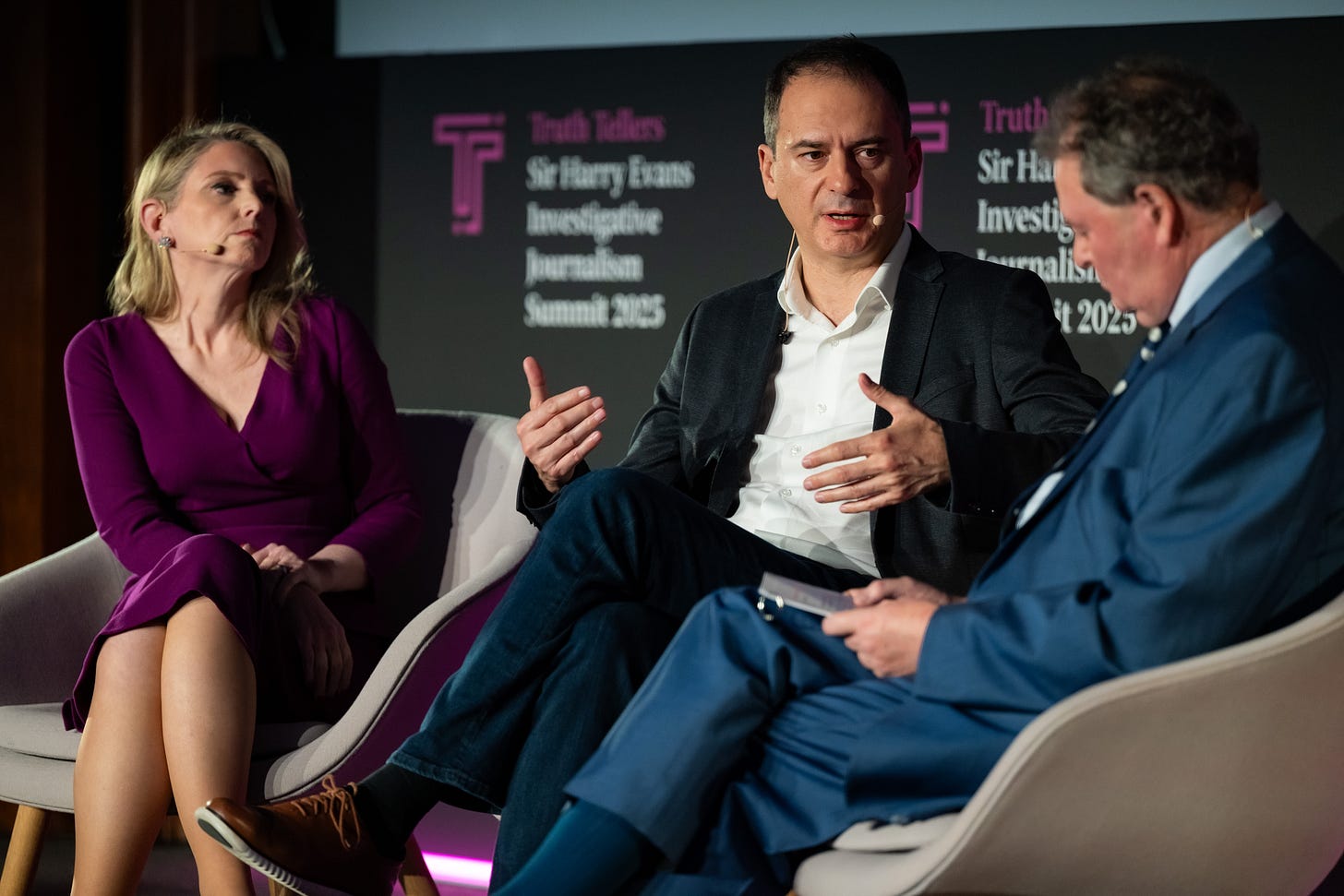
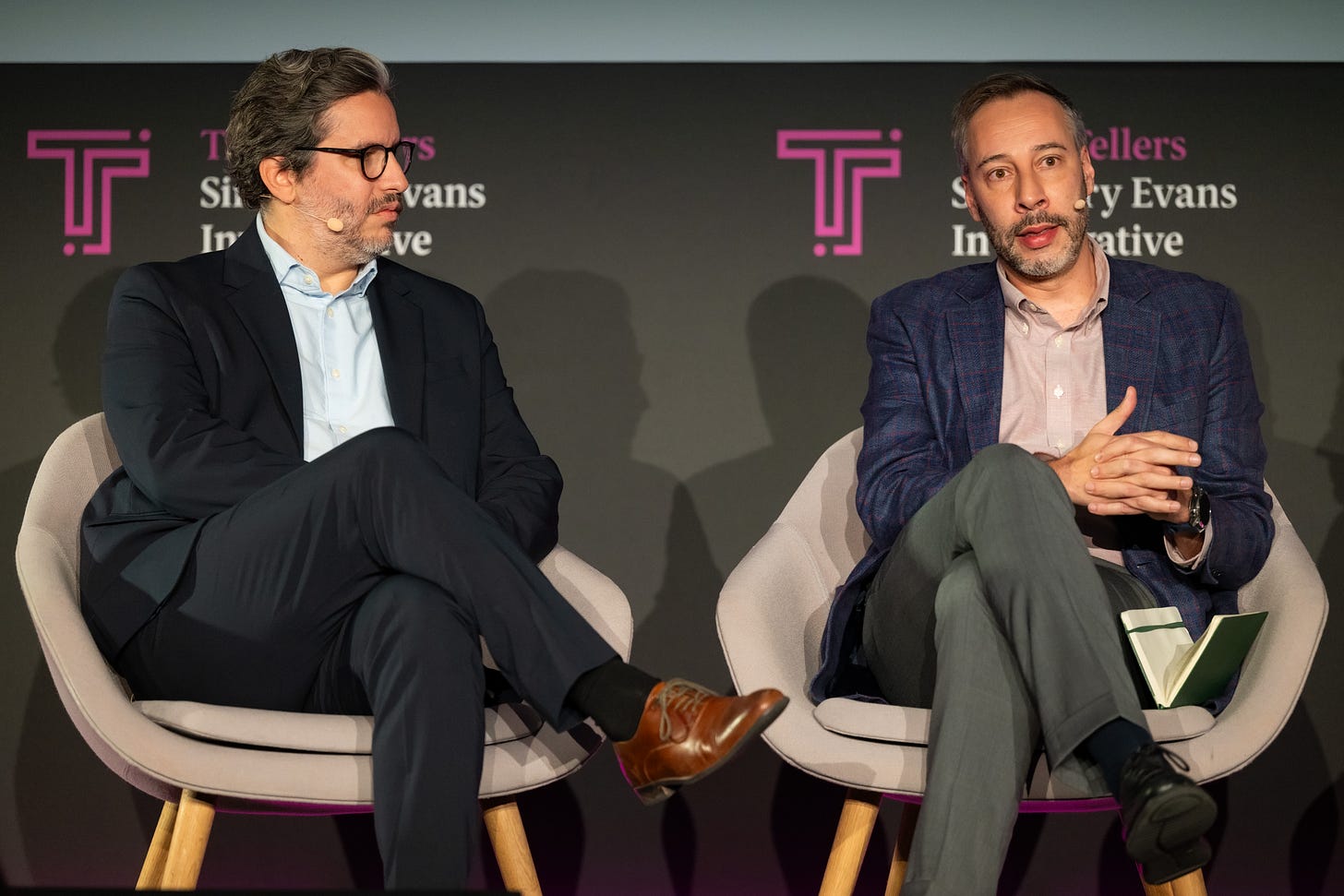
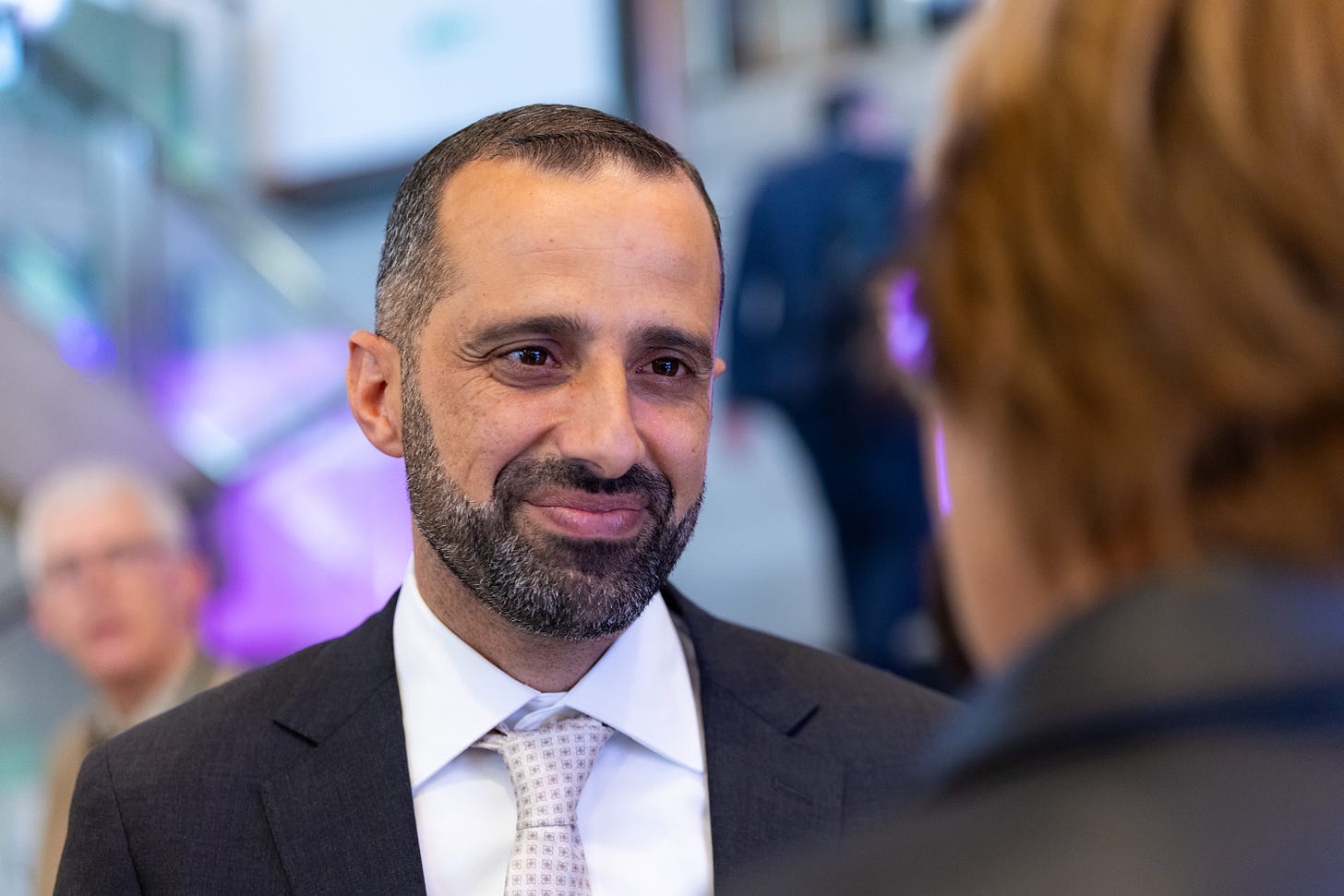

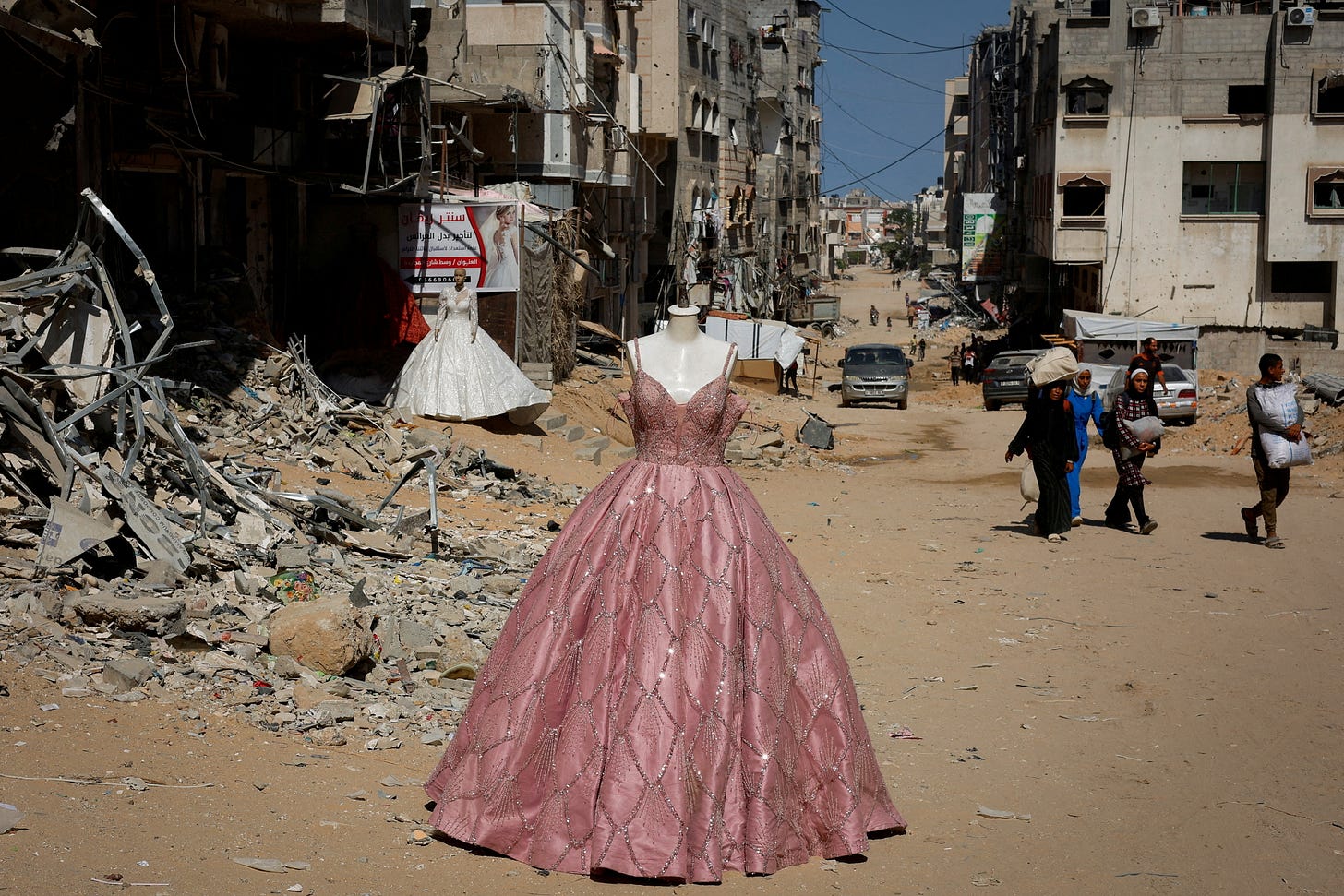
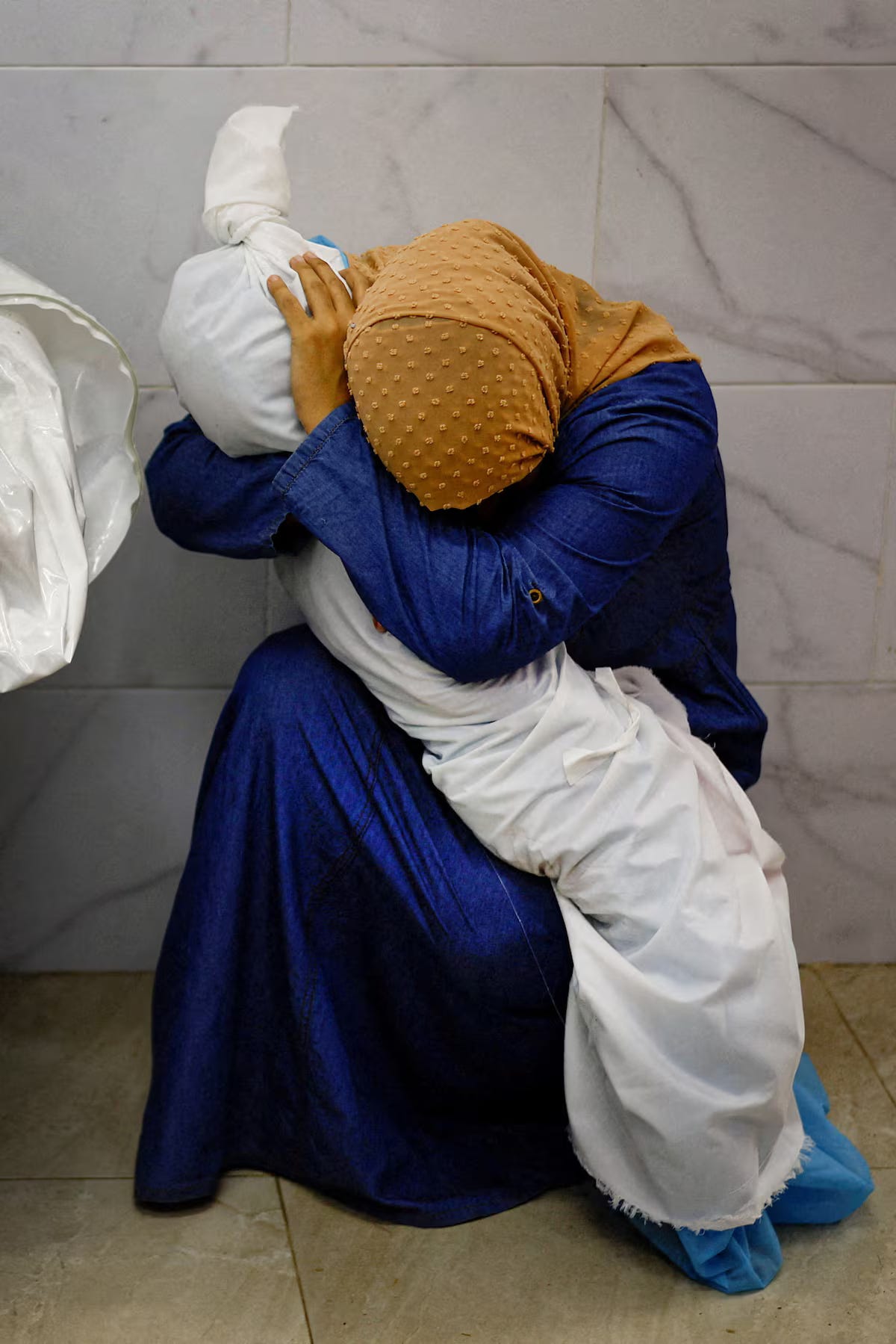
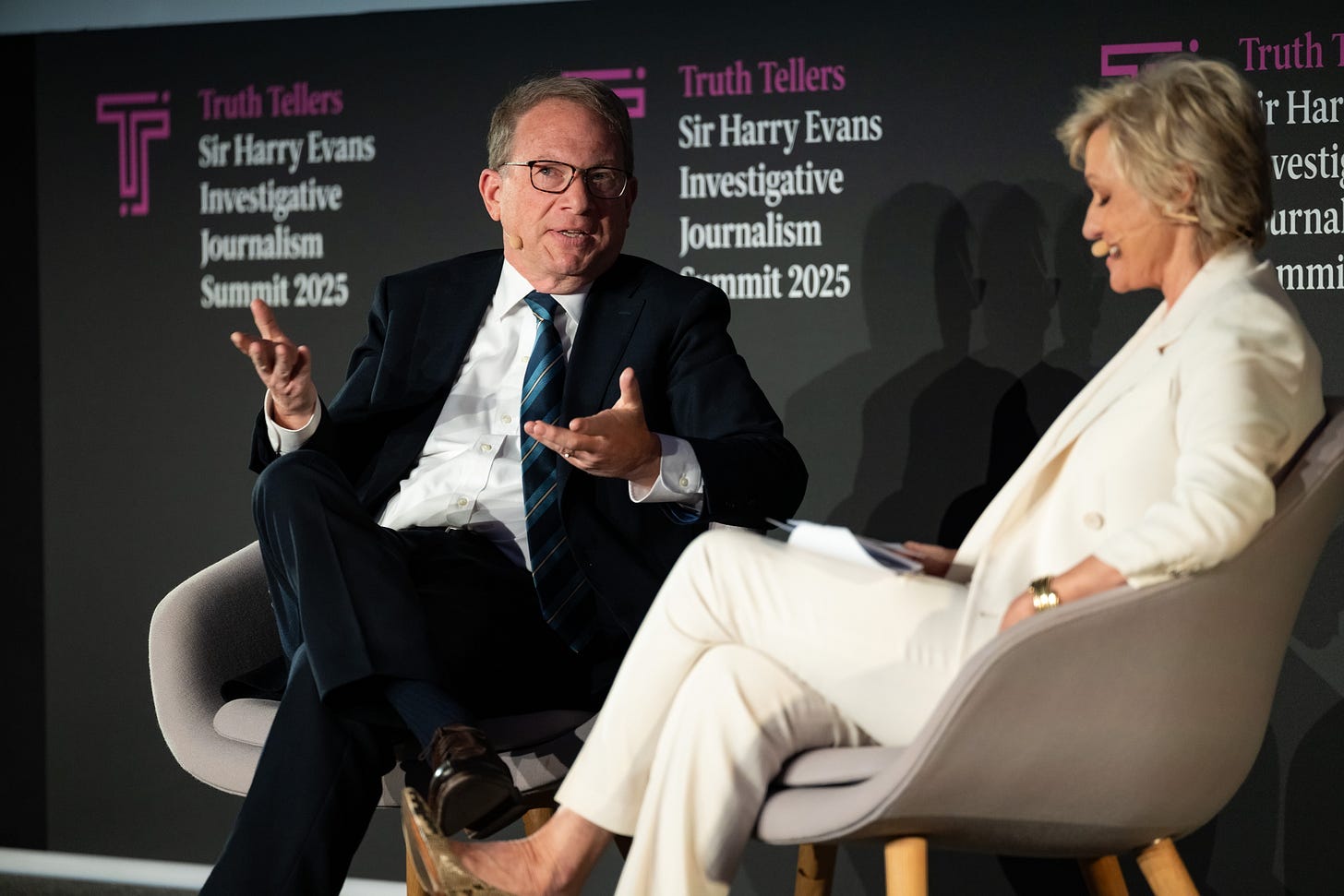

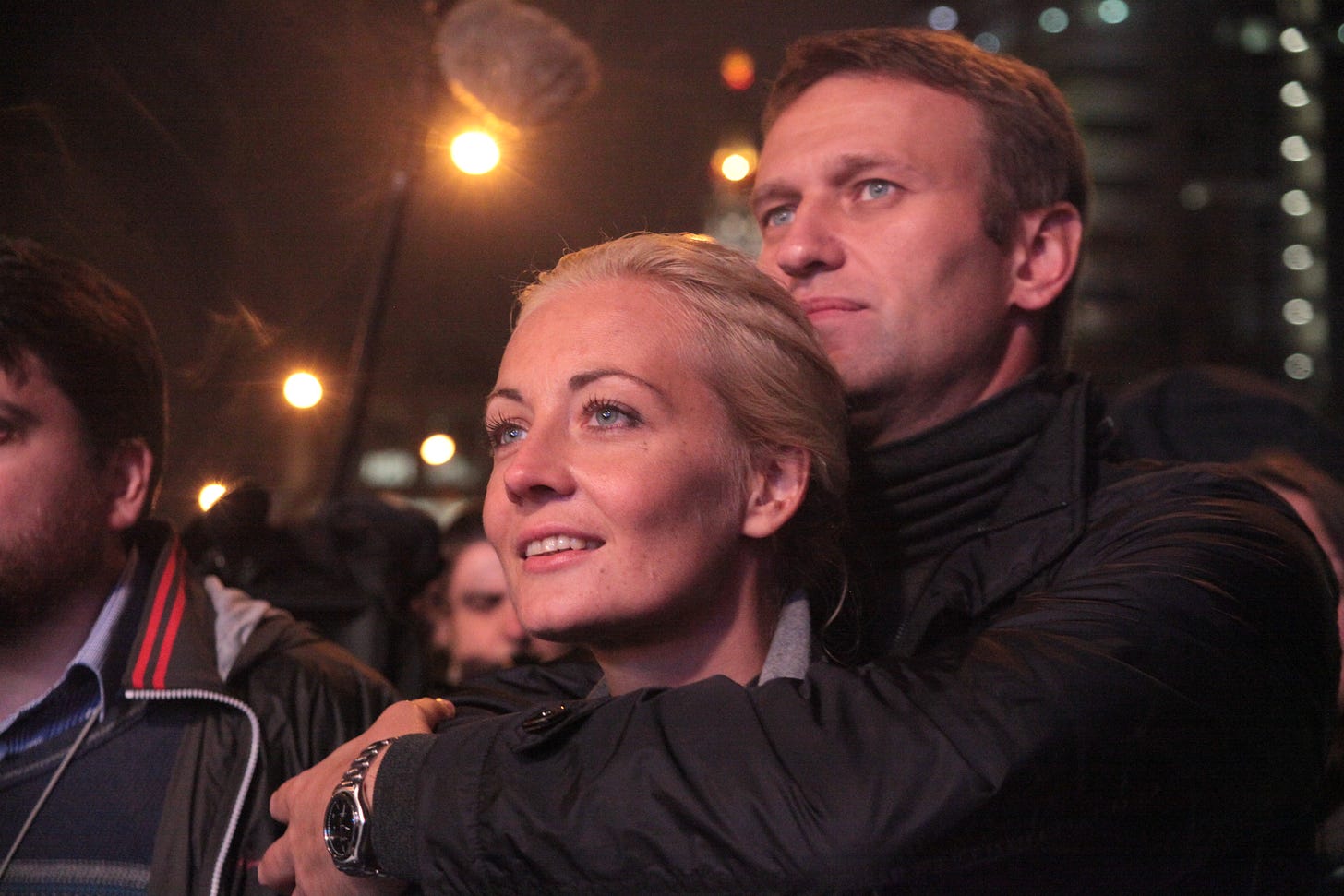

We first heard from Pope Leo's humble brother John. Now we learn he has a volatile-ish brother Louis. This will make him eminently more qualified for this job and every person on the planet will empathize with him. He is relatable. Siblings form us.
Thank you for this column and for the report from the conference - what an amazing, inspiring lineup - and for naming the conference for Harry, journalism's Northstar, not just yours. Sending love and admiration from Porto